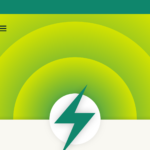
All ExpressVPN users enjoy the simplicity of pressing our app’s “on” button to instantly get a different IP address and secure their internet activity with best-in-class encryption.
Over the years, we’ve also added numerous ways to customize your experience. These have included an ad blocker, a kill switch, a password manager, split tunneling, and many more.
We’ve added a few more features recently that might be easy to miss—but they could provide helpful ways of troubleshooting problems with your VPN connection.
Refresh button: When your connection needs a jiggle
We say “jiggle” because that’s the best way to put it. You know how sometimes there seems to be something wrong with your router or phone charger and you give the plug a jiggle? That’s essentially what this new button does when your VPN connection seems to not be running as smoothly as you’d expect.
For instance, you are on a video call and your VPN seems to be slowing it down too much. While speeds might be reduced when the VPN is on, it shouldn’t be so affected that you cannot carry on with the call. Your first reaction might be to turn the VPN off and on again. After all, it’s a tried and true method for fixing something not functioning properly.
With the Refresh button—which looks like a “reload” symbol and is located next to your VPN IP address on your ExpressVPN home screen for iOS and Android—you can initiate a reconnection of the VPN to see if the situation improves. The best thing about it is you don’t ever lose VPN protection, even for a moment. You’re just giving your connection a jiggle.

Try a different Lightway encryption cipher
The ExpressVPN app now lets you choose a different encryption cipher for our Lightway protocol. Lightway is the VPN protocol we built from the ground up, and most of our users are using it. But Lightway supports both encryption ciphers (or algorithms) commonly associated with VPN protocols: AES-256 and ChaCha20.
While our app will automatically choose the most suitable cipher for you based on your device, there are times where you might want to try a different one. The most likely reason for trying a different cipher is to troubleshoot a slow connection.
AES-256-GCM is the current standard for symmetric encryption and can be accelerated by special hardware found in modern processors (such as those from Intel, AMD, and Apple) to run extremely fast. However, with lower-cost devices, AES-256 can actually be very slow, as their processors do not have this hardware acceleration. For devices with this problem, ChaCha20 is able to provide high performance and high security encryption, as it is optimized to run in-software.
If you are experiencing a slow connection and using a lower-cost or older device, it might be particularly worth testing different ciphers.
Lightway encryption cipher selection is now available on the ExpressVPN app for iOS, Android, and Windows. Go to your app’s protocol settings and you’ll see “Advanced options” under Lightway UDP and TCP. As always, if you are not sure what protocol settings to use, simply choose “Automatic.”
Lightway NAT heartbeats: Ensure timely message retrieval
There are rare cases when a VPN user notices that push notifications about emails or chat messages are not instantaneously appearing on their phones. The delay could mean that while the user has left a device temporarily inactive, the VPN tunnel has also similarly gone into an idle state, affecting the retrieval of notifications. Note that the VPN is still turned on, with all VPN functionality and benefits enabled, including protection against data leaks.
With the NAT heartbeats setting enabled, small packets of data (heartbeats) are sent through the VPN tunnel every few seconds to keep it fully active. This means if a new email or message is sent to your device, you’re sure to get the push notification instantly.
The increased activity does mean that this feature would consume more of your battery power. It’s available on our apps for iOS and Android. Go to your app’s protocol settings and you’ll see “Advanced options” under Lightway UDP and TCP.
Want to get further under the hood?
We’re always making small and big changes—some that aren’t visible—to give you a better experience and stronger privacy protections. Learn about some of our most recent upgrades:
- With ExpressVPN, your IP changes for every site
- Dynamic MTU: How we fixed a common cause of browsing problems
- Auto-update: A deceptively simple feature
- ExpressVPN launches post-quantum protection to defend users against threats of the future
- Your ExpressVPN app just got 5 new features and service upgrades
- Upgrading Lightway to DTLS 1.3, an industry first for safety and speed
The post Have you noticed these new app features? appeared first on ExpressVPN Blog.




